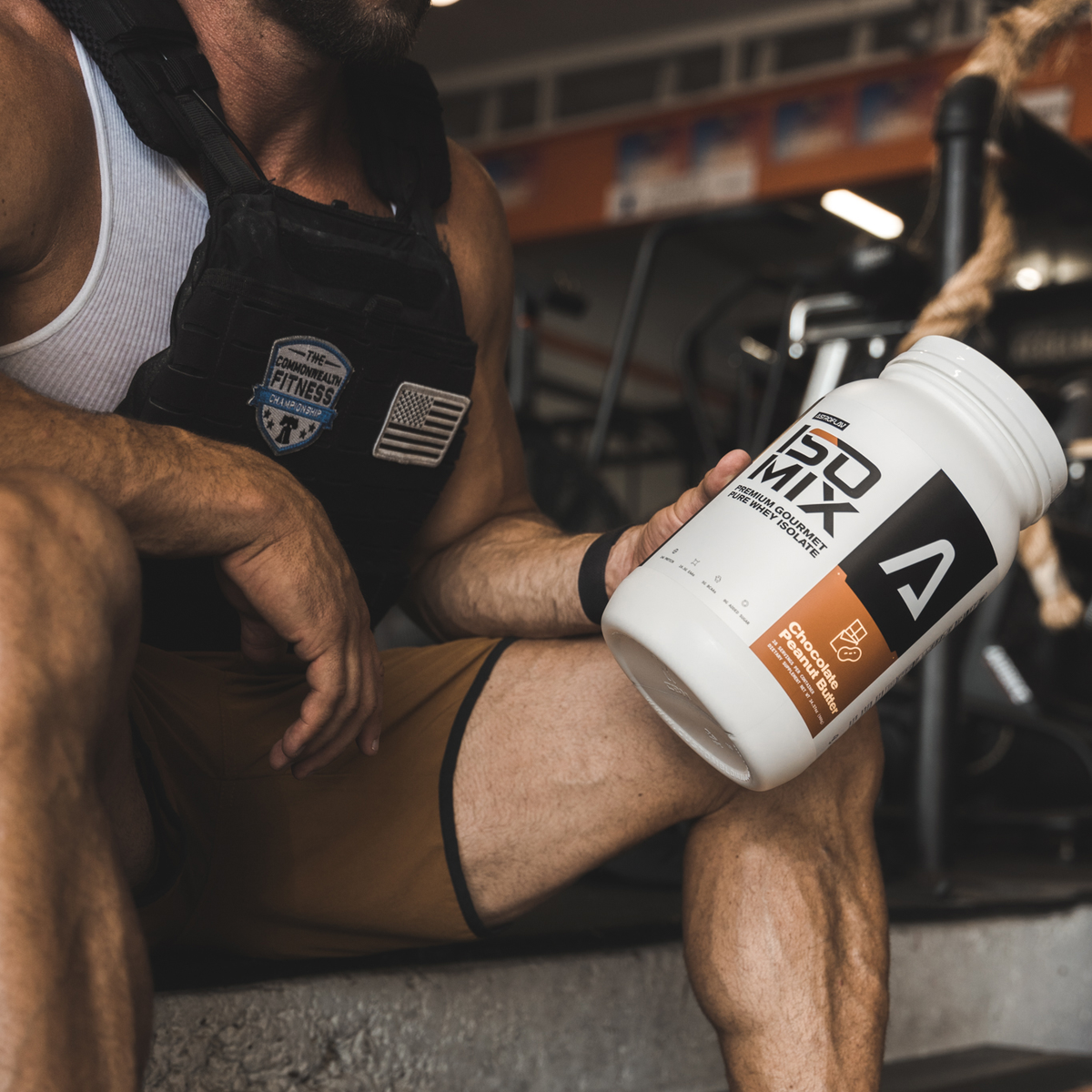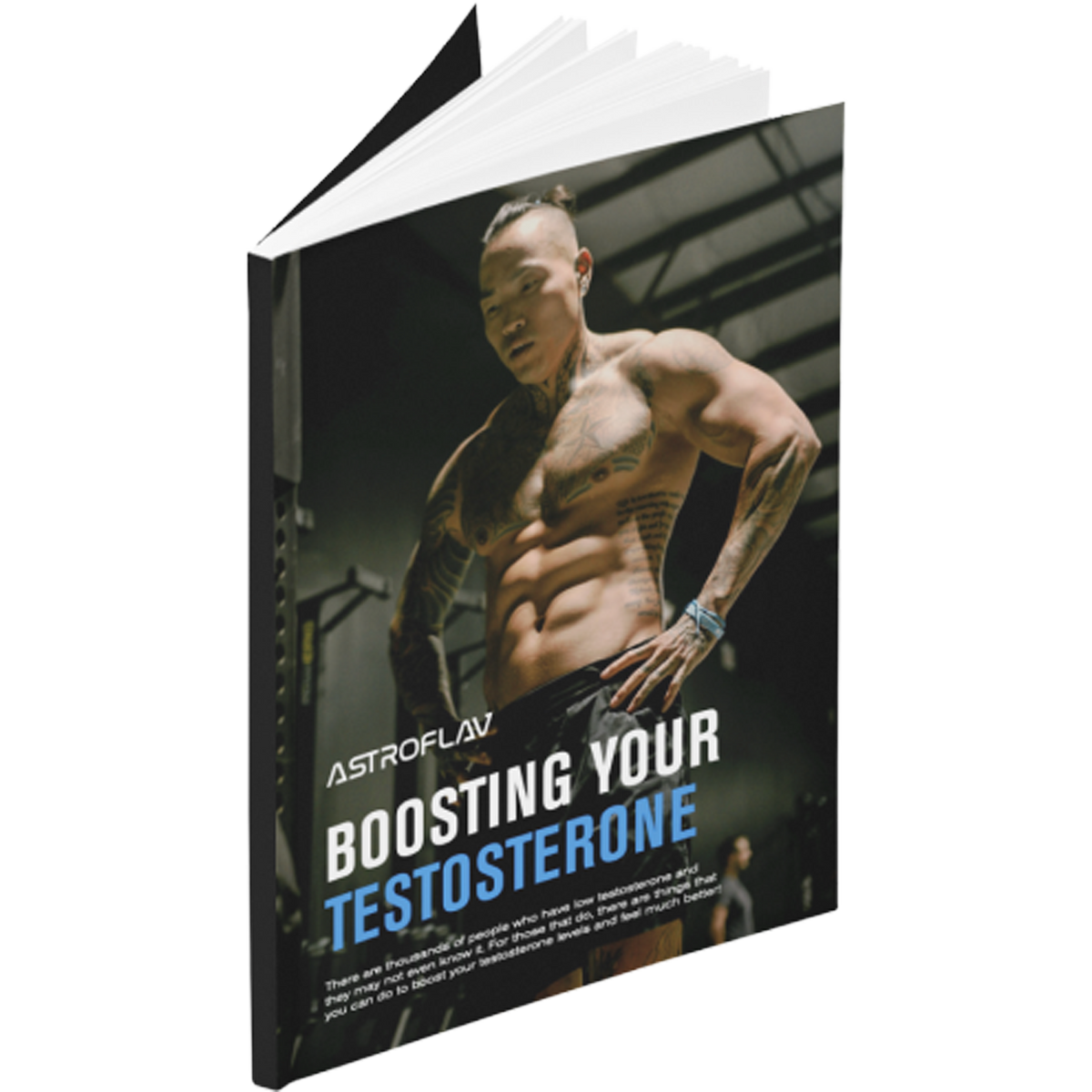
Magnesium For Muscle Recovery
Did you know that one of the top 10 best supplements for muscle recovery is a magnesium supplement? Magnesium is not only extremely beneficial for sleep regulation and calming the nervous system, but it is also beneficial for muscle recovery. Whether you're a regular gym enthusiast or a competitive athlete, understanding the role of magnesium in aiding muscle recovery is essential. This article explores how magnesium supports faster recovery times, enhances muscle function, and contributes to overall physical well-being. Discover why magnesium should be a staple in your post-workout routine for optimal performance and recovery!
What is Magnesium?
Magnesium is an essential mineral crucial for numerous bodily functions, including muscle and nerve function, energy production, and bone health. It exists in various forms, such as capsuled supplements and tablets, powders, and in various food sources — each offering unique benefits for overall well-being.
Magnesium is a vital mineral that benefits individuals of all activity levels, including regular exercisers and athletes. It comes in various forms like Magnesium Bisglycinate, Sucrosomial® Magnesium, and ATA Mg® Magnesium N-Acetyl, each offering unique advantages. The information below will explain the significance of each and what each of them are beneficial for.
These forms support muscle relaxation, energy production, electrolyte balance, and antioxidant effects, crucial for reducing inflammation and promoting faster muscle recovery after strenuous workouts. Incorporating magnesium into one's diet can significantly enhance muscle health and overall athletic performance, making it an essential nutrient for active lifestyles.
Overall, magnesium supports the body's energy metabolism, protein synthesis, and nerve function -- vital for optimal performance during exercise. Adequate magnesium intake not only supports muscle recovery but also contributes to overall cardiovascular health and bone density.
Magnesium's Role in Muscle Recovery
Magnesium is a vital mineral for muscle recovery, playing multiple roles that enhance post-exercise recuperation. It helps mitigate oxidative stress and reduces inflammation, which are common after intense physical activity. By participating in the regulation of calcium and potassium levels, magnesium ensures proper muscle contraction and relaxation cycles, preventing cramps and spasms.
Additionally, magnesium is essential for ATP (adenosine triphosphate) production, the primary energy carrier in cells, which is crucial for sustained muscle function and recovery. It also supports protein synthesis, a fundamental process for muscle repair and growth. Research indicates that maintaining adequate magnesium levels can significantly decrease muscle soreness, improve muscle strength, and enhance overall recovery times post-exercise.
Magnesium can be obtained from various dietary sources such as leafy greens (e.g., spinach, kale), nuts (e.g., almonds, cashews), seeds (e.g., pumpkin, chia), whole grains (e.g., brown rice, quinoa), and legumes (e.g., black beans, chickpeas). For those who might struggle to get enough magnesium through diet alone, supplementation in forms like magnesium citrate, magnesium glycinate, or Epsom salt baths can be beneficial. Ensuring sufficient magnesium intake is crucial for athletes and individuals engaging in regular physical activity to optimize recovery and maintain peak performance.

Different Sources of Magnesium:
Magnesium Bisglycinate
Magnesium bisglycinate is a chelated form of magnesium where the mineral is bound to glycine, an amino acid. This form is known for its high bioavailability and absorption rate, making it gentler on the stomach compared to other magnesium supplements. The chelation process enhances its stability and helps prevent common digestive side effects like diarrhea. Magnesium bisglycinate is often recommended for individuals seeking to improve muscle function, reduce cramps, enhance sleep quality, and support overall health.
Sucrosomial® Magnesium
Sucrosomial® Magnesium is an innovative form of magnesium supplement where magnesium is encased in a liposomal structure formed by a matrix of phospholipids and sucrose esters. This unique encapsulation enhances the mineral's absorption and bioavailability, making it more effective at delivering magnesium to the body compared to traditional forms. The Sucrosomial® technology also helps to minimize gastrointestinal discomfort, a common side effect of many magnesium supplements, providing a gentler alternative for improving magnesium levels.
ATA Mg® Magnesium N-Acetyl
ATA Mg® Magnesium N-Acetyl is a specialized form of magnesium that combines magnesium with N-acetyltaurinate, an acetylated form of the amino acid taurine. This combination is designed to enhance the absorption and bioavailability of magnesium, ensuring more efficient delivery to the body's cells. N-acetyltaurinate is known for its neuroprotective properties and can help in reducing oxidative stress, supporting overall brain health. ATA Mg® is often used to improve cognitive function, reduce fatigue, and support muscle recovery and relaxation.
Signs of Magnesium Deficiency:
Research indicates that magnesium deficiency is fairly common in the modern Western population, largely due to contemporary agricultural and food processing practices. It's estimated that over 60% of people in the West lack adequate magnesium, with around 30% of individuals in the US and UK consuming less than the recommended daily amount through their diet. Below is a list of the most common signs and symptoms of a magnesium deficiency:
-
Muscular symptoms such as cramping
-
Prolonged muscle soreness
-
Muscle spasms
-
Poor sleep
-
Stress & anxiety
-
Restlessness & inability to relax
-
Inflammation/pain
How Much Magnesium Do You Need?
Determining the appropriate amount of magnesium for muscle recovery depends on several factors related to individual health and activity levels. Magnesium is essential for reducing inflammation and aiding in muscle recovery following intense exercise sessions.
Generally, adult males require approximately 400-420 milligrams of magnesium daily, while adult females need around 310-320 milligrams.
Athletes and those who engage in rigorous physical activities may benefit from slightly higher magnesium intake to support muscle function and promote faster recovery.
Consulting with a healthcare provider is recommended to determine the specific magnesium needs based on individual health conditions and lifestyle factors. Ensuring adequate magnesium intake can play a crucial role in maintaining muscle health and optimizing recovery after workouts.

How to Take a Magnesium Supplement:
It's particularly useful for individuals with diets low in magnesium-rich foods like leafy greens, nuts, and whole grains, or those with medical conditions that affect magnesium absorption. Athletes and people with high stress levels might also benefit from supplementation.
When to take magnesium:
Take one serving (2 capsules) daily. If needed, an additional serving can be taken separately or together to hit your body’s daily magnesium requirements. Magnesium supplements are best taken with meals to enhance absorption. If you're using magnesium to aid sleep, taking it in the evening, about 30 minutes before bed, can be particularly effective. Establishing a consistent routine by taking the supplement at the same time each day can help optimize its benefits.
The Bottom Line:
Incorporating a magnesium supplement into your daily routine can not only improve muscle relaxation and sleep quality, but it can also aid in muscle recovery. Those who engage in regular exercise, high-competitive athletes, and just the average joe can benefit immensely from the recovery aspect of this meticulously crafted supplement.
Luckily, Astroflav's Magnesium does all of the above. This supplement is designed to aid in muscle recovery, improve sleep, promote mental health, and supports heart and bone health. Not to mention, it also contains all three sources of magnesium, including Magnesium Bisglycinate, Magnesium Sucrosomial, and Magnesium L-Threonate.
Integrating magnesium into your daily regimen is a simple yet effective way to support overall muscle health and improve your fitness journey. Try yours today!
RESOURCES
-
Bilal, S., Hawa, N., Farhana, N., Muhammad, A., Muhammad, S., & Ghulam, A. (2013). Magnesium: The forgotten electrolyte–A review on hypomagnesemia. Pakistan Journal of Medical Sciences, 29(4), 977–981. Retrieved June 24, 2024, from https://www.ncbi.nlm.nih.gov/pmc/articles/PMC3703169/
3.5
-
National Institutes of Health, Office of Dietary Supplements. (n.d.). Magnesium: Health professional fact sheet. Retrieved June 24, 2024, from https://ods.od.nih.gov/factsheets/Magnesium-HealthProfessional/#:~:text=Magnesium%20is%20a%20cofactor%20in,%2C%20oxidative%20phosphorylation%2C%20and%20glycolysis.
-
Wax, B., Kavazis, A. N., & Weldon, K. (2020). Effects of citrulline supplementation on exercise performance in humans: A review. Journal of Strength and Conditioning Research, 34(5), 1480-1495. Retrieved June 24, 2024, from https://journals.lww.com/nsca-jscr/fulltext/2020/05000/effects_of_citrulline_supplementation_on_exercise.32.aspx



